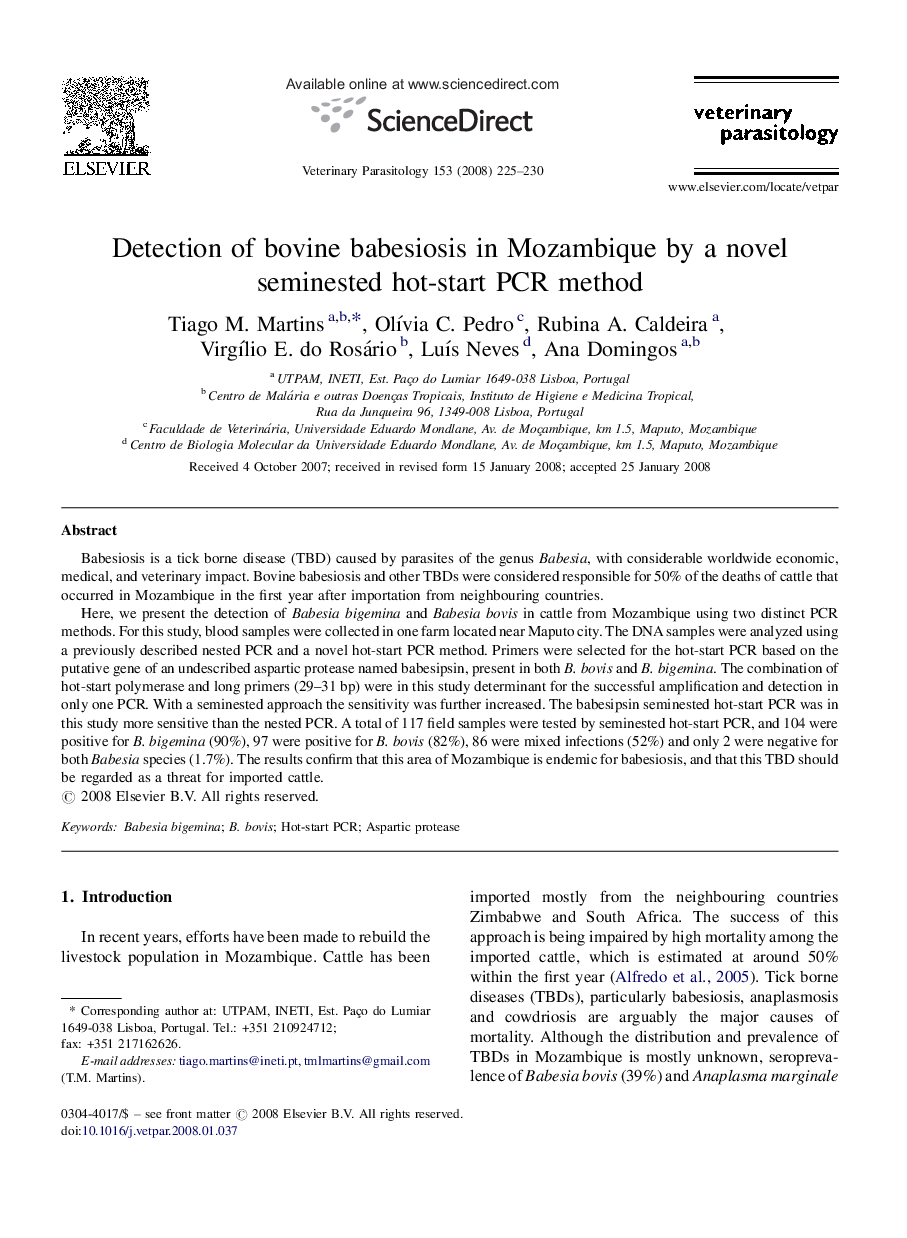| Article ID | Journal | Published Year | Pages | File Type |
|---|---|---|---|---|
| 2471707 | Veterinary Parasitology | 2008 | 6 Pages |
Babesiosis is a tick borne disease (TBD) caused by parasites of the genus Babesia, with considerable worldwide economic, medical, and veterinary impact. Bovine babesiosis and other TBDs were considered responsible for 50% of the deaths of cattle that occurred in Mozambique in the first year after importation from neighbouring countries.Here, we present the detection of Babesia bigemina and Babesia bovis in cattle from Mozambique using two distinct PCR methods. For this study, blood samples were collected in one farm located near Maputo city. The DNA samples were analyzed using a previously described nested PCR and a novel hot-start PCR method. Primers were selected for the hot-start PCR based on the putative gene of an undescribed aspartic protease named babesipsin, present in both B. bovis and B. bigemina. The combination of hot-start polymerase and long primers (29–31 bp) were in this study determinant for the successful amplification and detection in only one PCR. With a seminested approach the sensitivity was further increased. The babesipsin seminested hot-start PCR was in this study more sensitive than the nested PCR. A total of 117 field samples were tested by seminested hot-start PCR, and 104 were positive for B. bigemina (90%), 97 were positive for B. bovis (82%), 86 were mixed infections (52%) and only 2 were negative for both Babesia species (1.7%). The results confirm that this area of Mozambique is endemic for babesiosis, and that this TBD should be regarded as a threat for imported cattle.
